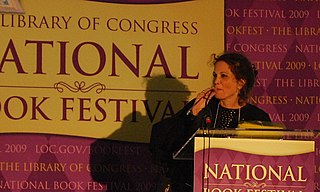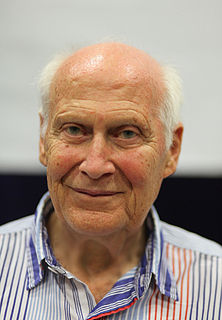A Quote by Julia Alvarez
Terrence, the Roman slave who freed himself with his writings, once observed, "I am a human being. Nothing human is alien to me." That could be the motto of literature!
Related Quotes
If a human being dreams a great dream, dares to love somebody; if a human being dares to be Martin King, or Mahatma Gandhi, or Mother Theresa, or Malcolm X; if a human being dares to be bigger than the condition into which she or he was born-it means so can you. And so you can try to stretch, stretch, stretch yourself so you can internalize, 'Homo sum, humani nil a me alienum puto. I am a human being, nothing human can be alien to me.' That's one thing I'm learning.
Today it is not alive. What, then, is this experience of humanism? With the above survey I have tried to show you that the experience of humanism is that — as Terence expressed it — “Nothing human is alien to me”; that nothing which exists in any human being does not exist in myself. I am the criminal and I am the saint. I am the child and I am the adult. I am the man who lived a hundred thousand years ago and I am the man who, provided we don't destroy the human race, will live hundred thousand years from now.
Kafka often describes himself as a bloodless figure: a human being who doesn't really participate in the life of his fellow human beings, someone who doesn't actually live in the true sense of the word, but who consists rather of words and literature. In my view, that is, however, only half true. In a roundabout way through literature, which presupposes empathy and exact observation, he immerses himself again in the life of society; in a certain sense he comes back to it.
Sartre is one example of someone who does just this. Every text is, after all, a human document and whatever Kierkegaard thought about God was clearly a matter of human thought that can, in principle, be retrieved and interpreted by other human beings. A phenomenological approach to religion must, it seems to me, adopt the old adage: nothing human is alien to me.
For one thing is needful: that a human being should attain satisfaction with himself, whether it be by means of this or that poetry or art; only then is a human being at all tolerable to behold. Whoever is dissatisfied with himself is constantly ready for revenge, and we others will be his victims, if only by having to endure his ugly sight.
An artist is he who has his center within himself. He who lacks this must choose a particular leader and mediator outside of himself, not forever, however, but only at first. For man cannot exist without a living center, and if he does not have it within himself, he may seek it only in a human being. Only a human being and his center can stimulate and awaken that of another.
Once I thought that to be human was the highest aim a man could have, but I see now that it was meant to destroy me. To-day I am proud to say that I am inhuman, that I belong not to men and governments, that I have nothing to do with creeds and principles. I have nothing to do with the creaking machinery of humanity - I belong to the earth!
In the beginning, I want to say something about human greatness. Some time ago, I was reading texts of Kungtse. When I read these texts, I understood something about human greatness. What I understood from his writings was: What is greatest in human beings is what makes them equal to everybody else. Everything else that deviates higher or lower from what is common to all human beings makes us less. If we know this, we can develop a deep respect for every human being.
Only to the extent that someone is living out this self transcendence of human existence, is he truly human or does he become his true self. He becomes so, not by concerning himself with his self's actualization, but by forgetting himself and giving himself, overlooking himself and focusing outward.





































